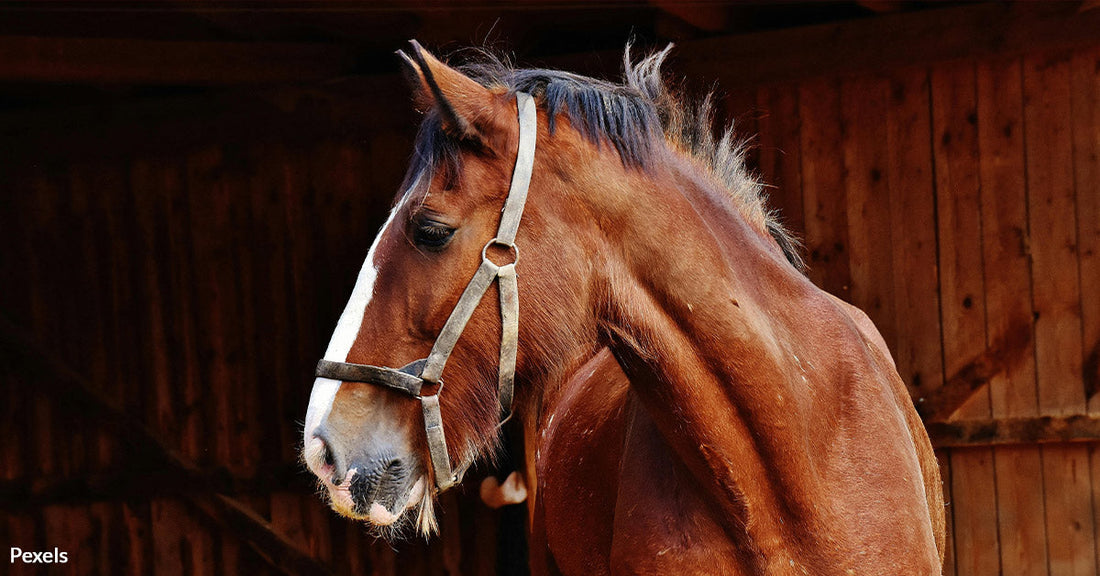Florida’s Black Market for Horse Meat Fuels Devastation and Heartbreak
Matthew Russell
Horse theft and the black-market trade in horse meat are plaguing communities in Florida. A dark and often hidden industry, it thrives on illegal slaughterhouses and stolen livestock.
Despite efforts from law enforcement and animal advocates, the problem persists.

Photo: Pexels
A String of Thefts and a Black Market
In recent months, several horses have been stolen across Florida. Investigators believe these incidents are connected to an underground market for horse meat. In St. Lucie and Okeechobee counties, at least four horses were reported missing, their fences cut and trailers spotted on surveillance footage.
St. Lucie County Sheriff Keith Pearson told FOX 13 News, “We do know there is a black market for horse meat.”
One such theft devastated Melanie Stavert’s family. Their horse, Okie, was taken from their property. Her daughter Ava described Okie as “the best,” telling WPTV, “He’d do anything for me.”

Photo: Pexels
Illegal Slaughterhouses and Brutal Practices
Florida law prohibits the possession or sale of horse meat without USDA inspection, making the trade entirely illicit. Animal Recovery Mission (ARM), an organization dedicated to exposing animal cruelty, has uncovered numerous illegal slaughterhouses. Richard Couto, ARM’s founder, revealed that animals are often killed in inhumane ways.
“They’re being stabbed to death, boiled alive,” he told FOX 13 News. “The neglect of animals awaiting slaughter is horrific.”
One of ARM’s investigations documented the slaughter of a thoroughbred racehorse named Funny Biz. Video evidence showed workers leading the horse to her death. Her meat was later sold for $2,000, according to FOX 13 News.

Photo: Pexels
The Cultural and Financial Drivers
Demand for horse meat in some communities fuels this black market. Many consumers believe it has medicinal or nutritional benefits. Sellers can charge anywhere from $10 to $40 per pound, making it a lucrative business, CBS 12 reports.
Beyond financial incentives, cultural preferences also contribute. Some see horse meat as a delicacy, leading to thefts of horses valued not only for their monetary worth but for their sentimental and therapeutic roles. Paloma, a horse used for therapy rides, was among three slaughtered in Redland, Miami.
“The therapeutic aspect of horses is something near and dear to me,” her caretaker, David Yepez, told The Guardian.

Photo: Pexels
Law Enforcement and Legislative Challenges
While law enforcement has made arrests, efforts to dismantle these networks face obstacles. Investigations can be slow, and cases like the illegal slaughterhouse in Hernando County have dragged on for months without resolution. ARM’s Couto expressed frustration, telling FOX 13 News, “It’s a frightening thing to think about how many horses have met the same fate.”
Congressman Vern Buchanan is pushing for the SAFE Act, which would permanently ban horse slaughter in the U.S. He called the practice “barbaric” and told FOX 13 News it has “absolutely no place in America.”

Photo: Pexels
Hope Through Awareness and Action
Advocacy groups continue to expose this grim trade. ARM has offered a $25,000 reward for information leading to arrests in recent thefts. Community vigilance is essential, as authorities urge residents to report suspicious activity. Collaboration among law enforcement, animal advocates, and lawmakers could help stem the tide of this cruel industry.
For now, the thefts leave families mourning their losses and communities grappling with a harrowing reality. Stopping the trade is not just about saving horses—it’s about preserving a sense of safety and humanity.
Click below to take action for horses in Florida!

